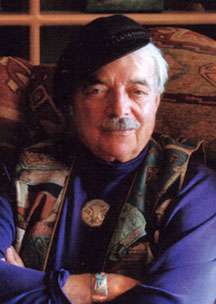 By James Bishop Jr.
By James Bishop Jr.
It is not enough to understand the natural world; the point is to defend and preserve it. —Edward Abbey’s Desert Solitaire
“The sedge is withered from the lake, and no birds sing,” —John Keats
Pesticides kill bees sorely needed to pollinate flowers and vegetables. Honeybee populations are declining, air pollution fouls the air above cities from Phoenix to Beijing, Monarch butterflies are changing migration routes and West Virginia mountaintops are being destroyed by coal shovels.
Wait a minute?
What year is this?
It is now.
Verde Valley pharmacists are having a exceptional year selling pills of all kinds to conquer major, and seeming endless allergies caused in part by climate change that’s warming land earlier than usual and generating rising concentrations of carbon-dioxide emissions due to burning coal, gas and coal.
Back on Earth Day, 1970, millions marched for clean air and water, fewer fossil fuels, the end of toxic chemicals. Then, politicians of all stripes offered laws and ideas to save America’s air, land and water. Whoops! Many of those politicians, spurred on by Arizona Senator McCain, who supports uranium mining near Grand Canyon, now run in the opposite direction busy competing to weaken environmental laws and abolish agencies like the Environmental Protection Agency. Irony rarely runs deeper than here since EPA was created by Republican President Dick Nixon who stated that efforts to save the environment should be “now or never.” As a result of Nixon’s charge scientists and politicians turned to renewable power, from wind, sun and water. These days’ lobbyists for oil and coal are busy badmouthing renewables and protecting huge subsidies for fossil fuels.
With springtime here, Earth Day set for 22 April, many still remember Rachel Carson, whose powerful book “Silent Spring” published 51 years ago, blew the whistle on the widespread use of pesticides and herbicide (some of them many times more toxic than DDT). Her work set the path toward Earth Day that prompted new laws. Were she around today, friends say, she’d be more than a bit upset about how little people have learned about defending the environment. In her book she raised questions: whether any civilization can wage relentless war on life without destroying itself, and without losing the right to be called civilized. That question should be burning bright in our lives. Carson challenged two of America’s closely held notions: Nature can be engineered to suit the whims and needs of humans, and second that corporations could be trusted to regulate itself and make decisions in the public interest. Few put it better than Robert Kennedy around the first Earth Day: “We have been breaking a lot of little laws for a long time, and now the big laws Nature’s laws are catching up with us.”
As for Earth itself, trouble lay ahead on two fronts. In the early 1980s, incoming president Reagan killed solar programs and labeled environmentalist that dreaded word, liberal. His mantra was derived from the past, fossil fuels and nuclear power; his regulators for the most part came from the industries they are supposed to be regulating. Oil spills followed, energy companies gradually the upper hand so that precautionary approaches to drilling have pushed aside for hydro cracking huge deep shale beds all over the country, and in nations like Turkey.
Sadly, the prediction of many scientists, citizens, poets, federal officials are on the verge of coming true: “Fossil fuel resources are finite,” warned former Interior Secretary Steward Udall a few months before he died. “They really will run out—and their use has altered Earth’s atmosphere. On both fronts Americans are in denial.”
What lies ahead? Truth be known a future without climate change is already beyond our grasp nonetheless, a better future awaits us. No longer can we rely on individual politicians or government to launch an economic, cultural and social transformation. Ahead may be marches, protests, demonstrations, nonviolent disobedience. Ahead, too, is recognition that the bad guys are not miners, industrialists, ranchers, loggers. What we need is a radical transformation that revalues the wild earth, –its mystery, order and essential harmony.
To paraphrase Walt Kelly’s adaptation of an officer’s famous battle report from Lake Erie, “We have met the enemy and he is us.”




3 Comments
Right on, Jim.
There are too many to fight to gain some semblance of humanity in the world today. The gov’t. has no sense and fights the people, food companies serve people poison, corporations have killed the environment, greedy bastards everywhere only want more and more money and too bad if people are starving – it is all taking away my will to live with all the chaos. Enough is enough. I can see thru most of the bullshit now and all I see is bullshit.
They’re going to look us straight in the eye and lie to us. What are we going to do about it?